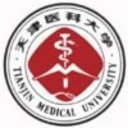Protective effects of Polygonum multiflorum on ischemic stroke rat model analysed by 1H NMR metabolic profiling.
Keywords
Abstract
Stroke is the third most common cause of death in most industrialized countries. Polygonum multiflorum (He-Shou-Wu, HSW) is one of the traditional Chinese medicines with multiple pharmacological activities which is widely used in Chinese recipe. This study aims to explore the protective effect of HSW on ischemic stroke rat model and to elucidate the underlying mechanisms. The mortality rate, neurological deficit, cerebral infarct size, histopathology, immunohistochemistry, biochemical parameters, quantitative real-time polymerase chain reaction and western blotting were used to access the treatment effects of HSW on ischemic stroke. Proton nuclear magnetic resonance (1H NMR) based metabolomics analysis disclosed that HSW could relieve stroke rats suffering from the ischemia/reperfusion injury by ameliorating the disturbed energy and amino acids metabolisms, alleviating the oxidative stress from reactive oxygen species and reducing the inflammation. HSW treatment increased levels of cellular antioxidants that scavenged reactive oxygen species during ischemia-reperfusion via the nuclear erythroid 2-related factor 2 signaling pathway, and exert anti-inflammatory effect by decreasing the levels of inflammatory factors such as cyclooxygenase-2, interleukin-1β, interleukin-6 and tumor necrosis factor-α. The integrated metabolomics approach showed its potential in understanding mechanisms of HSW in relieving ischemic stroke. Further study to develop HSW as an effective therapeutic agent to treat ischemic stroke is warranted.




